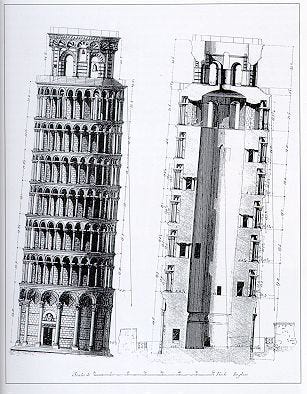Brain Food #596
Mistakes as the foundations of truth
Thoughts of the day
What may often seem like backtracking, especially if this comes from public figures and leaders, may simply be them acknowledging a mistake.
Admitting a mistake is not a sign of weakness, and definitely not a catastrophic failure; it is part of what makes us human. It starts with admitting that mistake to oneself, before admitting it to others.
Making mistakes simply means trying. Life is an experiment, and as we feel our way through it in the dark, often being asked to play new roles without any rehearsals, then mistakes are part of the journey. Carl Jung called mistakes “the foundations of truth”, and viewed them as a process of elimination: “if a man does not know what a thing is, it is at least an increase in knowledge if he knows what it is not.”
And, sometimes, mistakes can also lead to opportunities. In his speech on creativity in management, John Cleese, who talks about the open and closed modes, mentions Alexander Flemming and the discovery of penicillin, which was entirely coincidental and would have been missed had Flemming not been paying attention to what was beyond the scope of his work.
In the transactional nature of life, making mistakes should come with forgiveness. And in the realm of creativity and innovation, mistakes are openly welcomed, as they often end up being the work itself.
“Creativity is allowing yourself to make mistakes.
Art is knowing which ones to keep.”
- Andrew Wyeth
The leaning tower of Pisa is one of the most popular mistakes of history, and the tourism industry.
The architects had only built the first two floors when they realised the tower started leaning to one side. The building was abandoned for one hundred years, and was then completed in a way that would compensate for the tilt.

